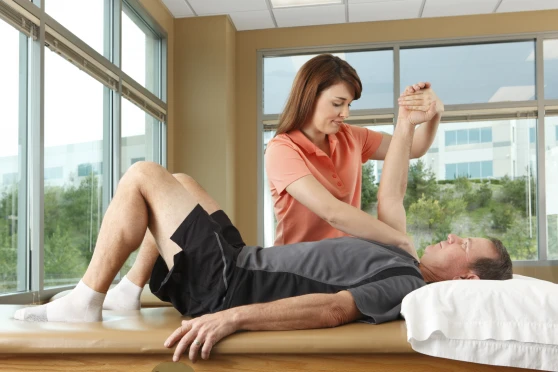
What Makes a Good Physical Therapist?
 In our area, even on the main road of our office, you can find multiple physical therapy offices to choose from. How do you know which one to pick or what qualities to look for that will give you the best results? In my opinion, there are several things you can see and/or ask for to know you will be getting top notch care.
In our area, even on the main road of our office, you can find multiple physical therapy offices to choose from. How do you know which one to pick or what qualities to look for that will give you the best results? In my opinion, there are several things you can see and/or ask for to know you will be getting top notch care.
For starters, look at the letters after their name. Here's a quick tutorial of some you might want:
- DPT or MPT- this means Doctorate or Master of Physical Therapy. There are still a few Bachelors of Physical Therapy as well, but they will soon be grandfathered in. You may also now see a tDPT which means transitional DPT (in other words they started as a BPT or MPT and then did extra course work to complete their DPT)
- MSAT, LAT- this is a Master’s Degree in Athletic Training meaning they have special education in sports specific movement, treatment and early intervention for athletes.
- CSCS or SCS- these are Certified Strength and Conditioning Specialist and Sports Conditioning Specialist. These are both special certifications for personal training that can help with sports performance.
- OCS, SCS, PCS, NCS- within the American Physical Therapy Association you can become a board certified specialist in certain settings. OCS is a board certified orthopedic specialist, SCS is sports, PCS is pediatrics and NCS is neurological. There are several others (women's health, geriatrics, etc) that other clinics may have as well.
There is no end to the amount of education a therapist can achieve and therefore there are many other letters you may see! While it is nice to see a bigger, longer alphabet soup behind your therapist’s name, rest assured that it is not the only factor that makes a great one.
Here are some other factors to check for once you have your evaluation.
- Education based- A big goal of physical therapy is to educate you on how to manage pain or symptoms long term. Should you ever have a relapse of an injury, your physical therapist should have spent enough time with you to know what to do. Throughout your course of therapy, and especially on the first day, your therapist should educate you on what they find in their exam, what your diagnosis means if you are unclear, and what the plan is to treat it. You should get exercises to practice and feel like they have taught you how to perform them.
- Evidence based- There are many things people do in the medical world because they were taught it a certain way and never strayed from it. They were told this is how it’s always been done, so they kept doing it. But medicine and science are changing all the time and you want to know that your therapist is going to keep up with what is being shown to work the best. You should here things like "Recent studies have shown..." or "the most current evidence shows..."
- Manual therapy- there are many studies that discuss the healing power of touch. It is important to touch, manipulate and feel what is happening to the tissues you are working on. Furthermore, current evidence in medical and physical therapy journals show improved outcomes when manual therapy is added to your plan of care. For that reason, you want to know that your therapist will be doing it as well.
- Patient based- There are a lot of models that therapists can use to guide your treatment. Many of these have basic principles that overlap because there are many common factors that lead to injuries. However, every patient that comes through our door has a unique history and unique goals. Your therapist should ask these things and tailor your plan of care to meet your individual needs.
These are just some of the factors that make a difference in the level of care you will receive and hopefully improve your satisfaction with the physical therapy process.